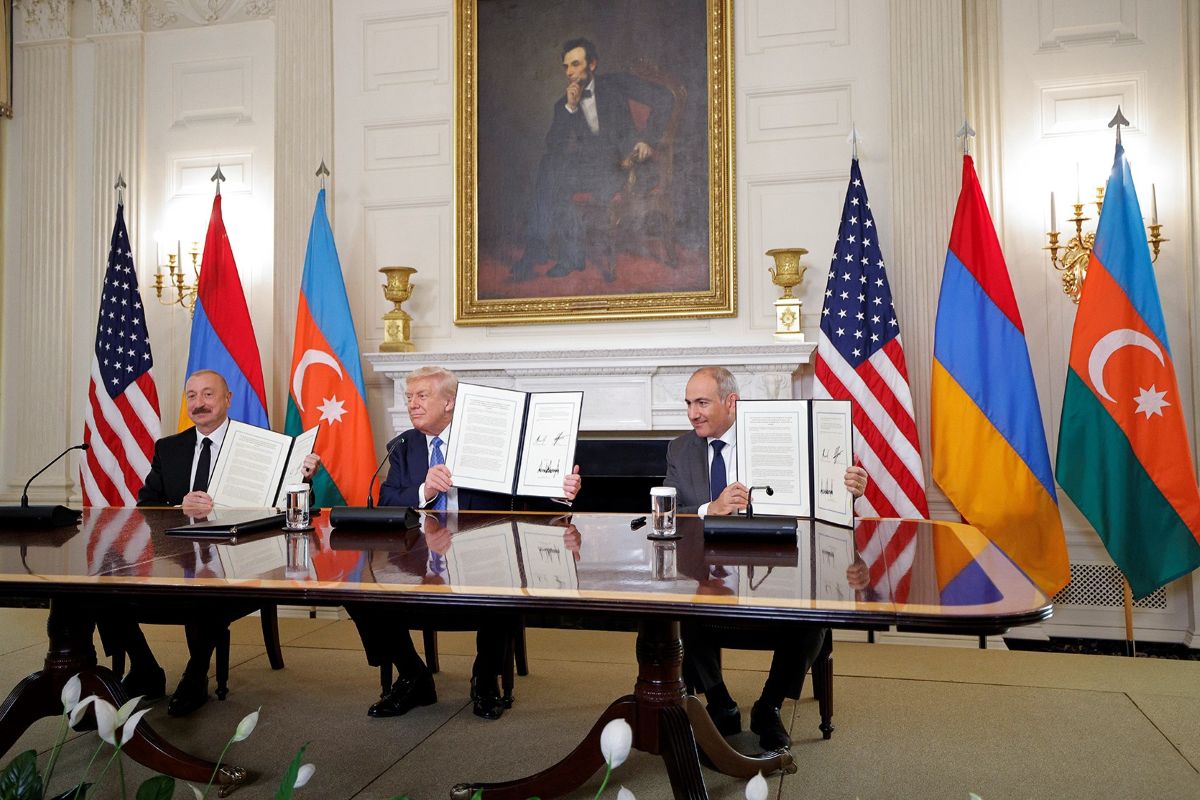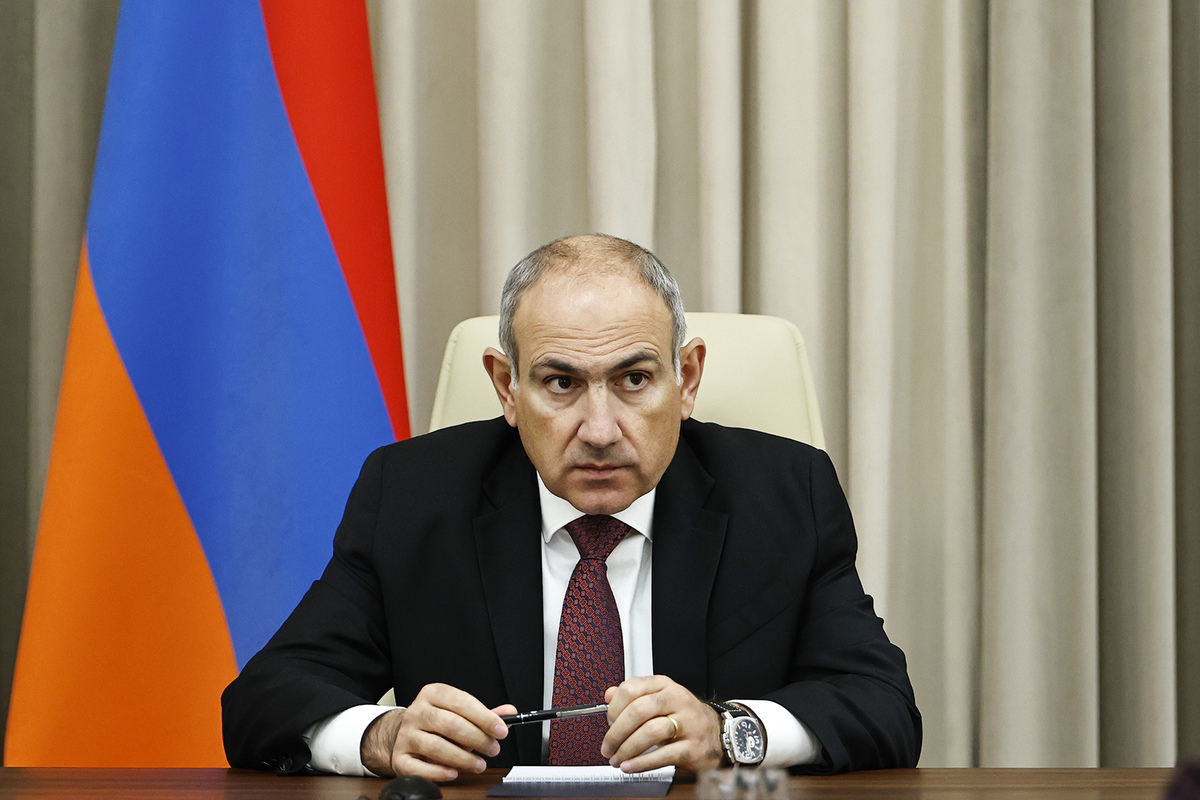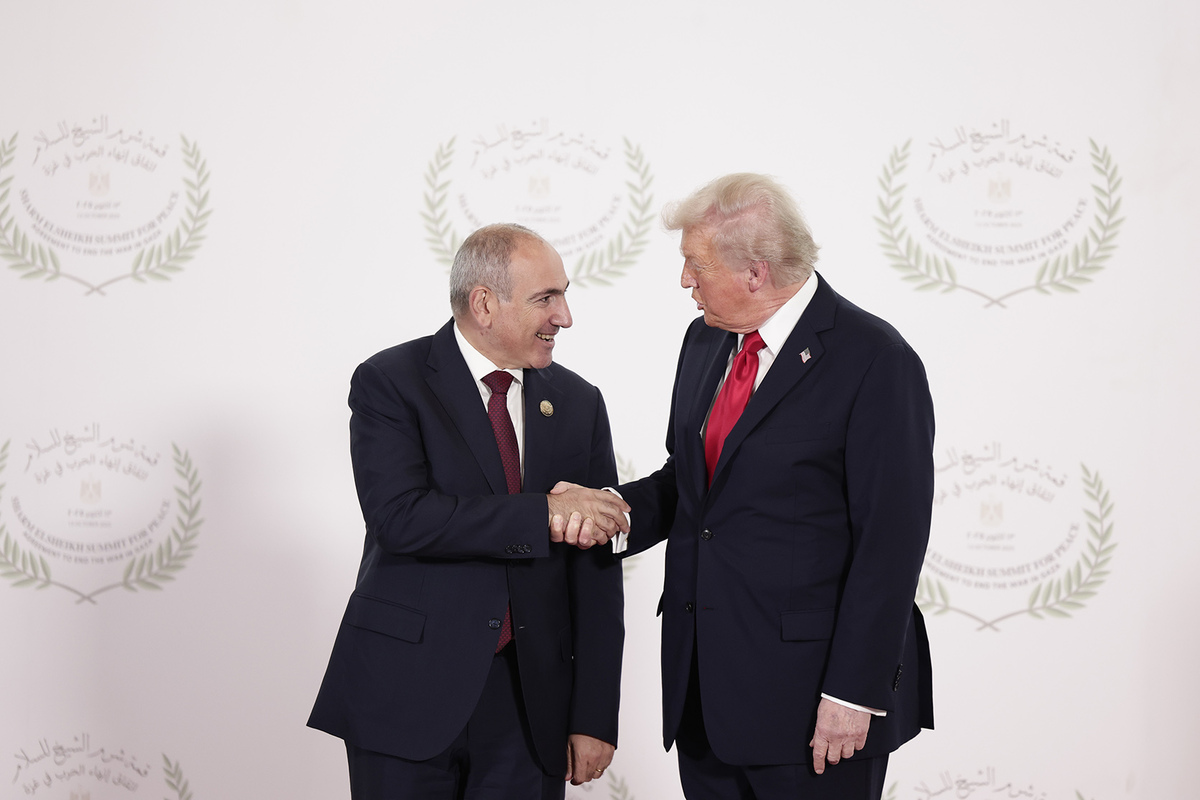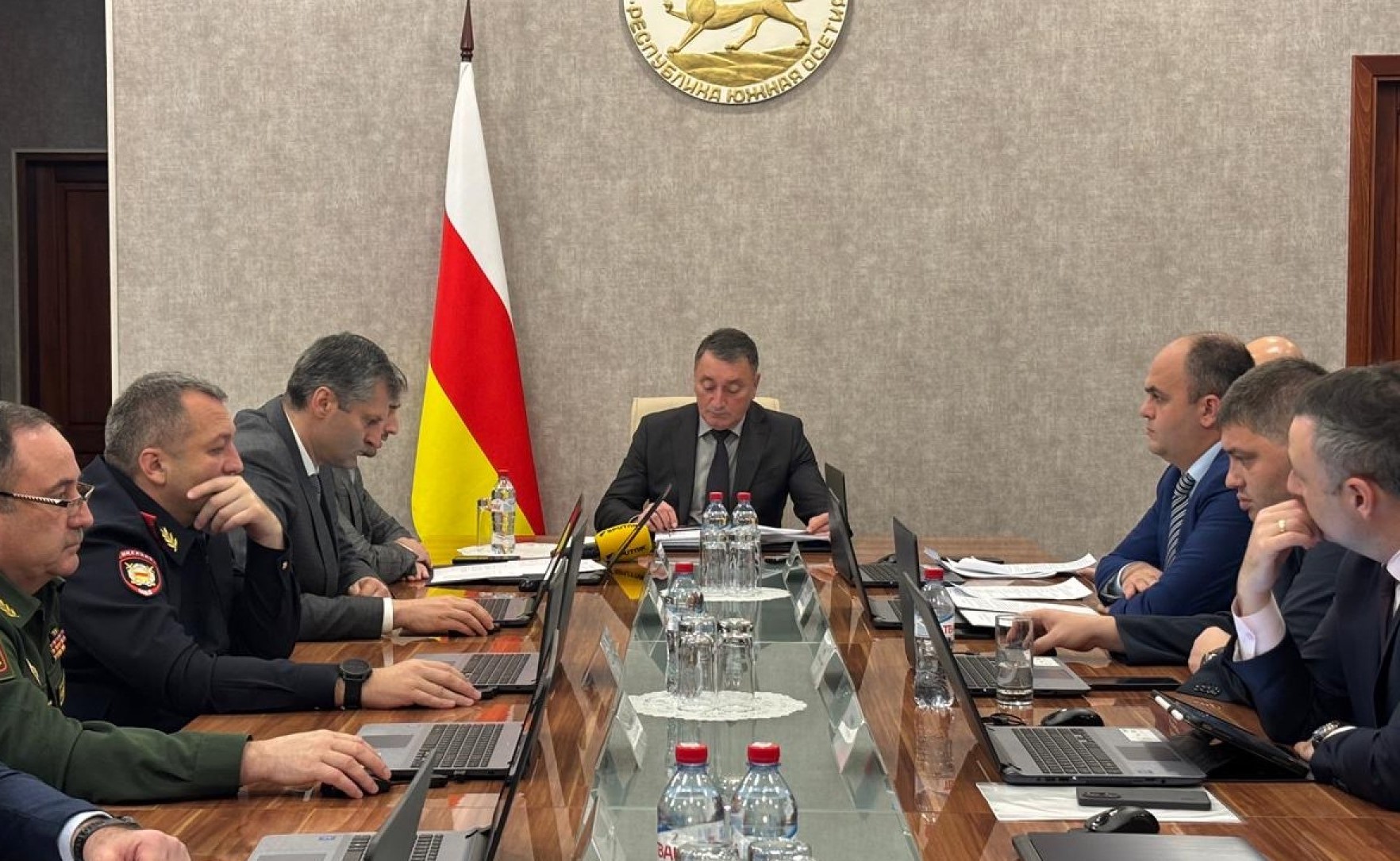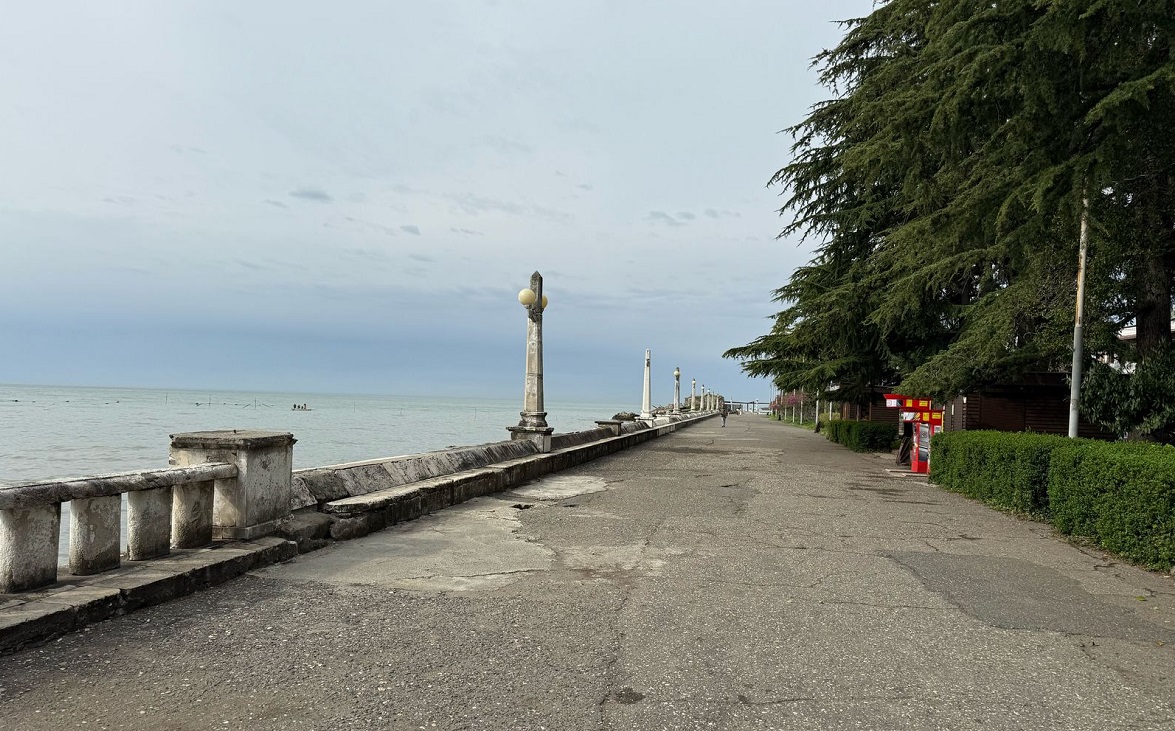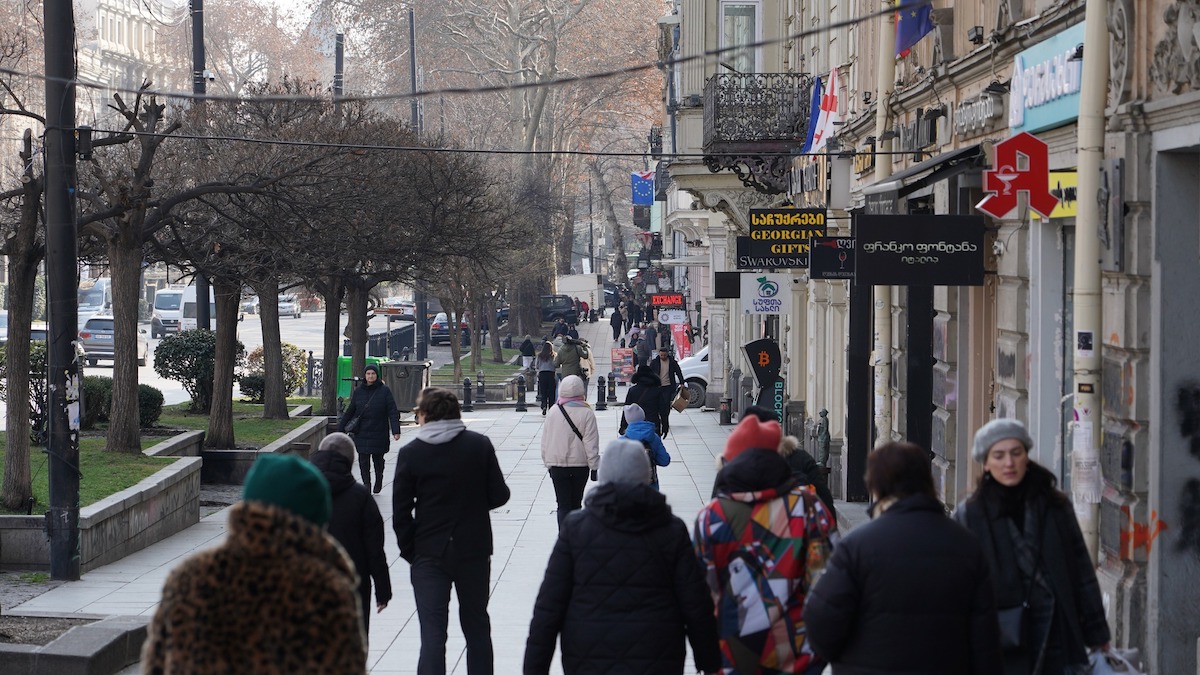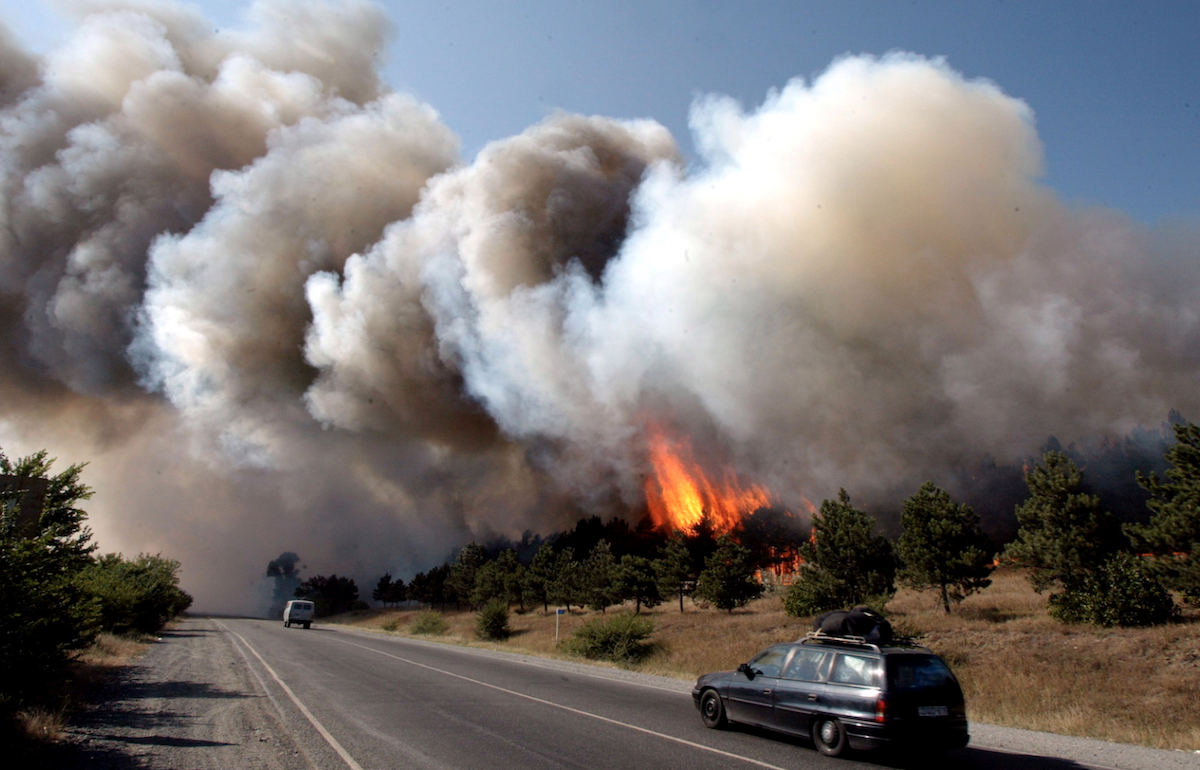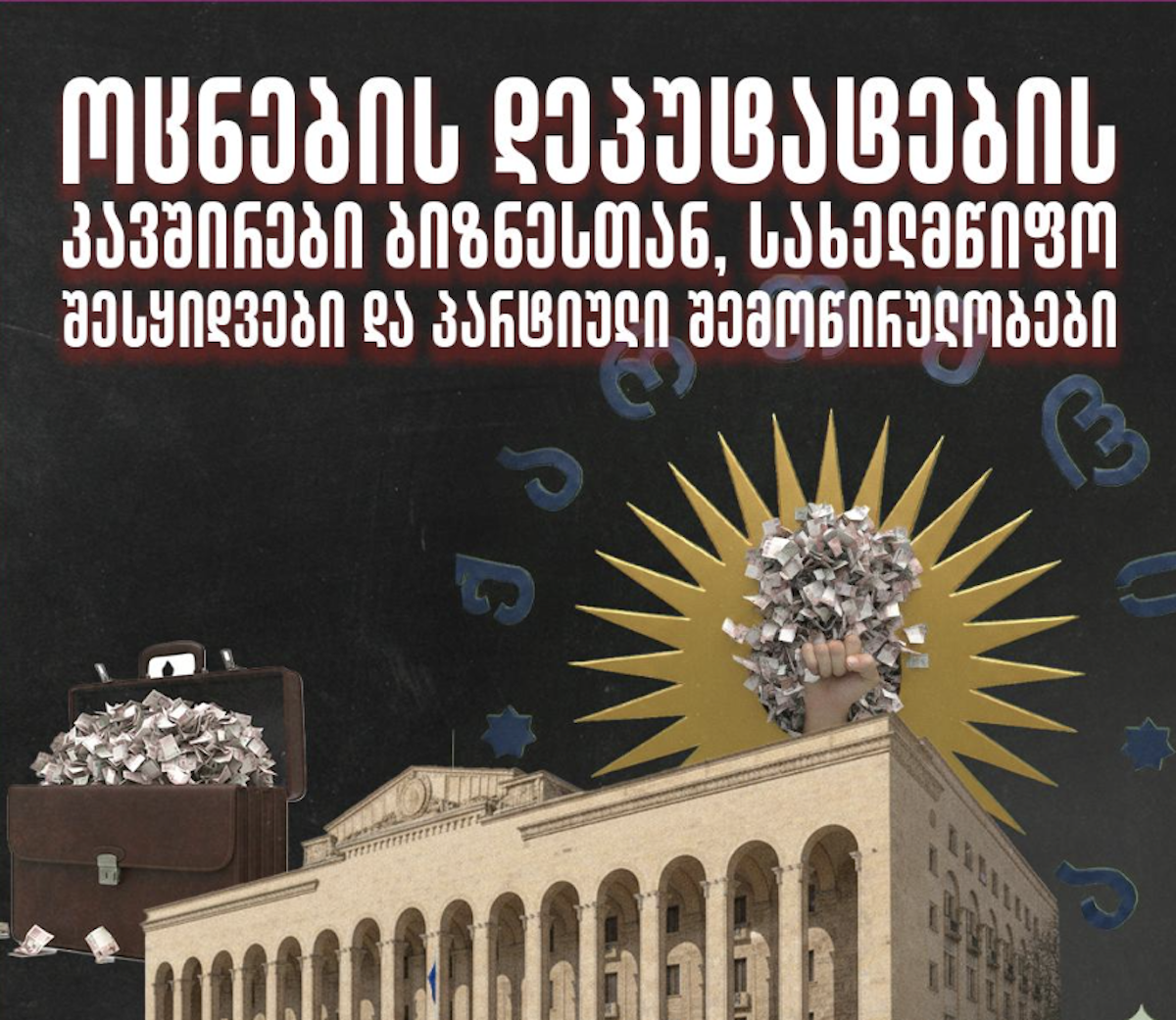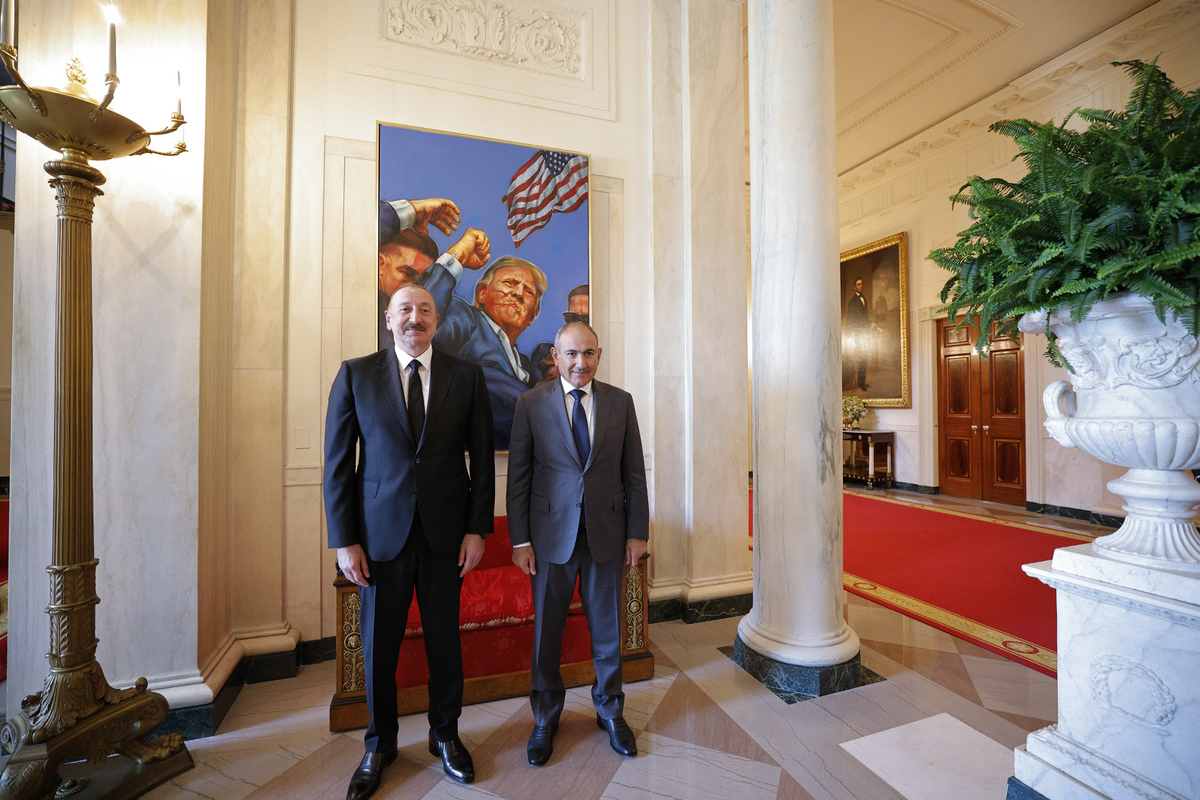Pashinyan visits Astana as Kazakhstan shows interest in 'Trump Route' project
Kazakhstan expresses interest in “Trump Route”
Armenian Prime Minister Nikol Pashinyan, visiting Astana on an official trip, said that relations between Armenia and Kazakhstan are approaching a level of strategic partnership. He described this development as a new starting point for expanding their future cooperation.
Kazakh President Kassym-Jomart Tokayev and Pashinyan signed a joint statement outlining steps to establish strategic partnership. The document states that the partnership will rest on principles of mutual trust, sovereign equality, shared benefit, territorial integrity, inviolable borders, peaceful dispute resolution, and the rejection of force or threats of force. It also emphasizes non-interference in each other’s internal affairs.
The statement highlights Kazakhstan’s support for Armenia’s “Crossroads of Peace” initiative, which aims to develop mutually beneficial transport cooperation among all countries in the region.
Both leaders emphasized the importance of developing the logistics corridors “Kazakhstan–Russia–Azerbaijan–Armenia” and “Kazakhstan–Turkmenistan–Iran–Armenia.”
During talks, they discussed measures to unblock communications across the South Caucasus region in detail.
Pashinyan and Tokayev repeatedly referred to the implementation of the “Crossroads of Peace” and “Trump Route” (TRIPP) projects. President Tokayev confirmed that Astana supports “Crossroads of Peace” and expressed Kazakhstan’s interest in participating in the “Trump Route” project.
The “Crossroads of Peace” initiative, launched by the Armenian government, seeks to unblock regional communications in all directions.
Armenia’s Foreign Minister Ararat Zurabyan explained that the project aims to connect east and west, north and south, foster political dialogue by strengthening economic and cultural ties and people-to-people contacts, and achieve comprehensive and lasting peace in the region for the benefit of all nations.
The “Trump Route for International Peace and Prosperity” (TRIPP) is a road that will connect Azerbaijan with its Nakhchivan Autonomous Republic through Armenian territory.
For several years, Yerevan and Baku struggled to reach an agreement on this issue. Azerbaijan insisted on access to a road it called the “Zangezur corridor.” Armenian authorities responded that they were willing to unblock all roads but rejected the term “corridor,” as it implied a loss of the country’s control and sovereign rights over the territory.
On 8 August in Washington, the two sides finally agreed that the road would remain under Armenia’s sovereign control, with the United States joining the unblocking process as a business partner. As a result, the project was named the “Trump Route” after the mediator.
Political analyst Robert Gevondyan believes that Kazakhstan’s participation in the “Crossroads of Peace” initiative is crucial.
He told JAMnews: “A crossroads implies roads running east to west and north to south. Kazakhstan occupies a significant part in the east. Without it, one wing of the crossroads will not function fully or at all. That is why Kazakhstan’s involvement in the ‘Crossroads of Peace’ is a condition for the project’s implementation.”
- Pashinyan dismisses reports of Ukrainian grain deliveries to Armenia as ‘nonsense’
- Pashinyan believes “Trump Route” will become a new component of Armenia’s security
- Armenian political analyst: ‘Aliyev sabotages peace process initiated by Trump’
Astana’s stance on TRIPP and unblocking the region
“We emphasize our interest in participating in the TRIPP project — the ‘Trump Route.’ Projects such as ‘North–South’ and the ‘Middle Corridor’ serve the interests of both countries. The new geopolitical situation in the South Caucasus creates opportunities to strengthen regional cooperation. Kazakhstan supports Armenia’s ‘Crossroads of Peace’ initiative,” President Tokayev said.
He also thanked the Azerbaijani authorities for “allowing Armenia to conduct direct trade” using Azerbaijani territory.
“In November this year, the first ton of Kazakh grain was delivered to Armenia through Azerbaijani territory. This holds significant political and economic importance,” the Kazakh president emphasized.
At the end of October, Azerbaijan lifted all restrictions on cargo transit to Armenia. Reports indicated that the first transit shipment would consist of wheat from Kazakhstan. However, in the early hours of 6 November, the first batch arrived from Russia — approximately 1,000 tonnes. Wheat from Kazakhstan, also around 1,000 tonnes, arrived on 8 November. Yerevan hopes for uninterrupted deliveries, while Astana has expressed readiness to supply about 15,000–20,000 tonnes of grain per month.
The issue of transport links was also raised by Economy Minister Serik Zhumangarin.
“Kazakhstan is considering opening a new trade route to Turkey through Armenia. A route via Armenia would give Astana direct access to Turkish ports and could expand the country’s transport capabilities. Currently, we transit through Azerbaijan to Georgia’s Black Sea ports. The new route would allow access to Nakhchivan and then directly to Turkey and its maritime ports,” he told journalists.
‘The Trump Route will boost the export potential of both Armenia and Kazakhstan,’ says Pashinyan
Armenian Prime Minister Nikol Pashinyan welcomed Kazakhstan’s interest in the “Trump Route” project.
“The implementation of this program will significantly expand the possibilities for bilateral economic cooperation between Armenia and Kazakhstan. It will boost the export potential of both countries — for Armenia, to the east, and for Kazakhstan, to the west,” he said.
Deputy Prime Minister Mger Grigoryan expressed confidence that Kazakhstan would benefit from the “Crossroads of Peace” project.
“When we complete these projects, you will see the logistical adaptations taking place in the region. The ‘Crossroads of Peace’ cannot fail to carry major regional logistical significance,” he said.
According to the deputy prime minister, the Armenia-Kazakhstan partnership has considerable potential. He emphasized the need to develop transit capacity so that businesses can take full advantage.
“If there is an alternative route that allows for new logistical solutions, it should be launched. In today’s international trade, logistical costs are very important. In this sense, exploring logistics solutions with Kazakhstan offers significant opportunities,” he added.
Commentarie from political analyst Robert Gevondyan
Political analyst Robert Gevondyan commented on the strategic importance of Kazakhstan in regional infrastructure and trade.
“Given the processes unfolding in our region, Kazakhstan is becoming a very important route. Essentially, everything done to unblock infrastructure links, on one side, connects the West and Europe through Turkey, and on the other side, China and other countries in the Pacific region through Kazakhstan.
Kazakhstan is becoming a crucial corridor, and not using it would be a strategic mistake. It is positive that Armenia has worked consistently in this direction. Cooperation with Kazakhstan began long ago and progressed at different levels. Finally, we have managed to elevate relations to a strategic level.
We know that the Kazakhstan–Azerbaijan–Georgia–Black Sea route has existed and functioned for a long time. Once the ‘Trump Route’ is operational and other infrastructure is unblocked, the routes Kazakhstan–Azerbaijan–Armenia–Turkey–Black Sea and Kazakhstan–Azerbaijan–Armenia–Georgia–Black Sea will become functional. This means Armenia and Kazakhstan will need to undertake significant work in this direction.
When Kazakhstan’s Economy Minister referred to the new railway through Armenia, he meant the ‘Trump Route.’ Clearly, Kazakhstan envisions a route from Azerbaijan through Armenia, via Meghri to Nakhchivan, then back through Armenia, Yeraskh–Gyumri, and onward to Turkey, to Kars.
The routes mentioned in the statement signed by Pashinyan and Tokayev — Kazakhstan–Russia–Azerbaijan–Armenia and Kazakhstan–Turkmenistan–Iran–Armenia — effectively bypass the Caspian Sea. This is currently the shortest route for transporting goods from Central Asia or China to Europe.
If there is a desire to transit through Russia, the route Russia–Azerbaijan–Armenia can be used. Otherwise, the Turkmenistan–Iran–Armenia route provides an alternative. Both of these routes cross two states that are not particularly favorable for the West — Russia and Iran. The only other alternative is the Caspian Sea, but ferry transport there remains unresolved.
We can receive any goods from Kazakhstan, including products on which we are heavily dependent on Russia. This primarily concerns wheat, but sugar, vegetable oil, and other products are also included. There are no restrictions, but if a railway is not used and goods are transported via the Caspian ferry, they will still need to pass through Russia.
Since this does not fully align with Moscow’s economic interests, the Russian side is likely to create certain obstacles, both legal and extralegal. In that case, the Turkmenistan–Iran route can serve as an alternative.”
Kazakhstan expresses interest in “Trump Route”










